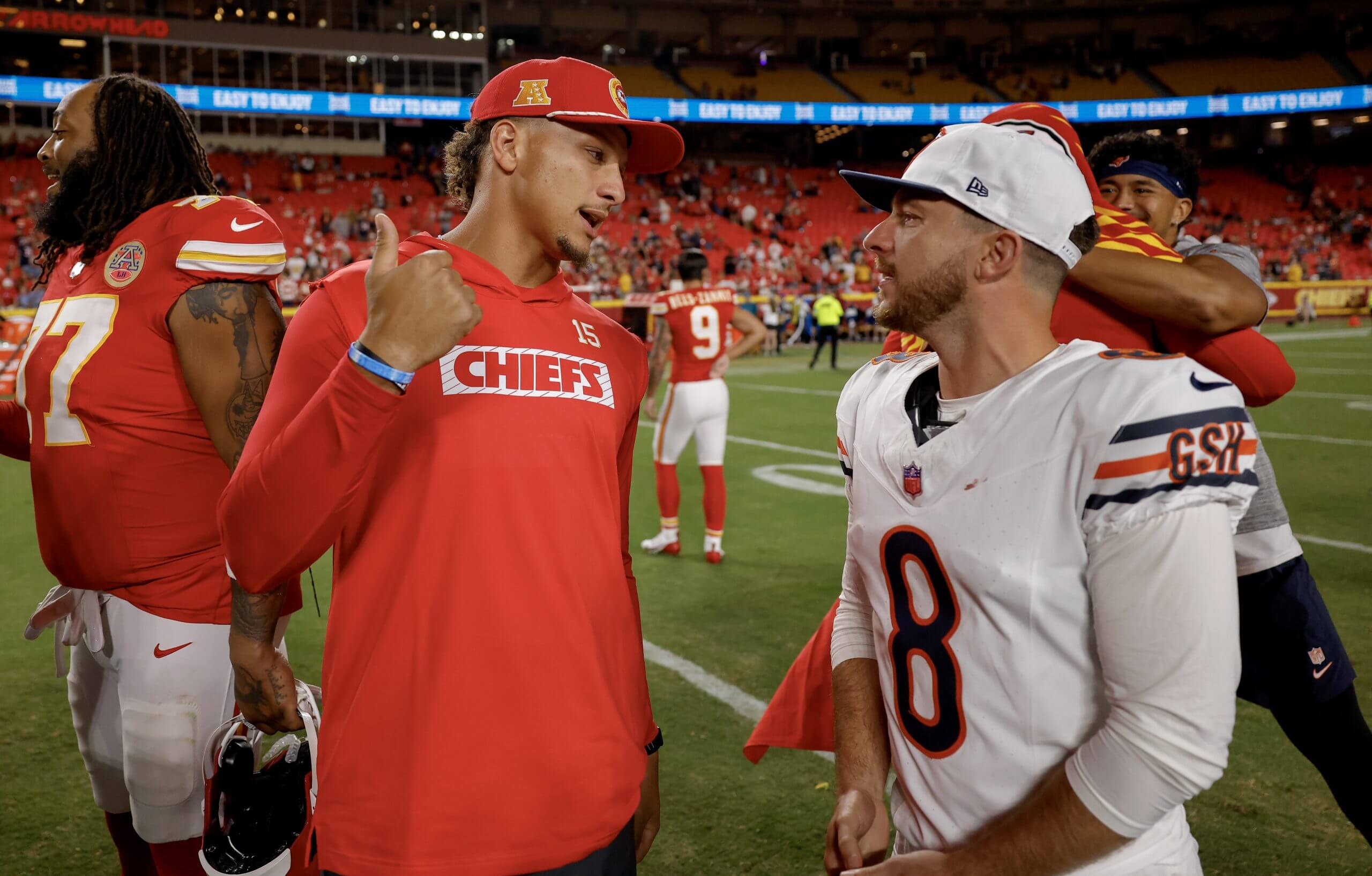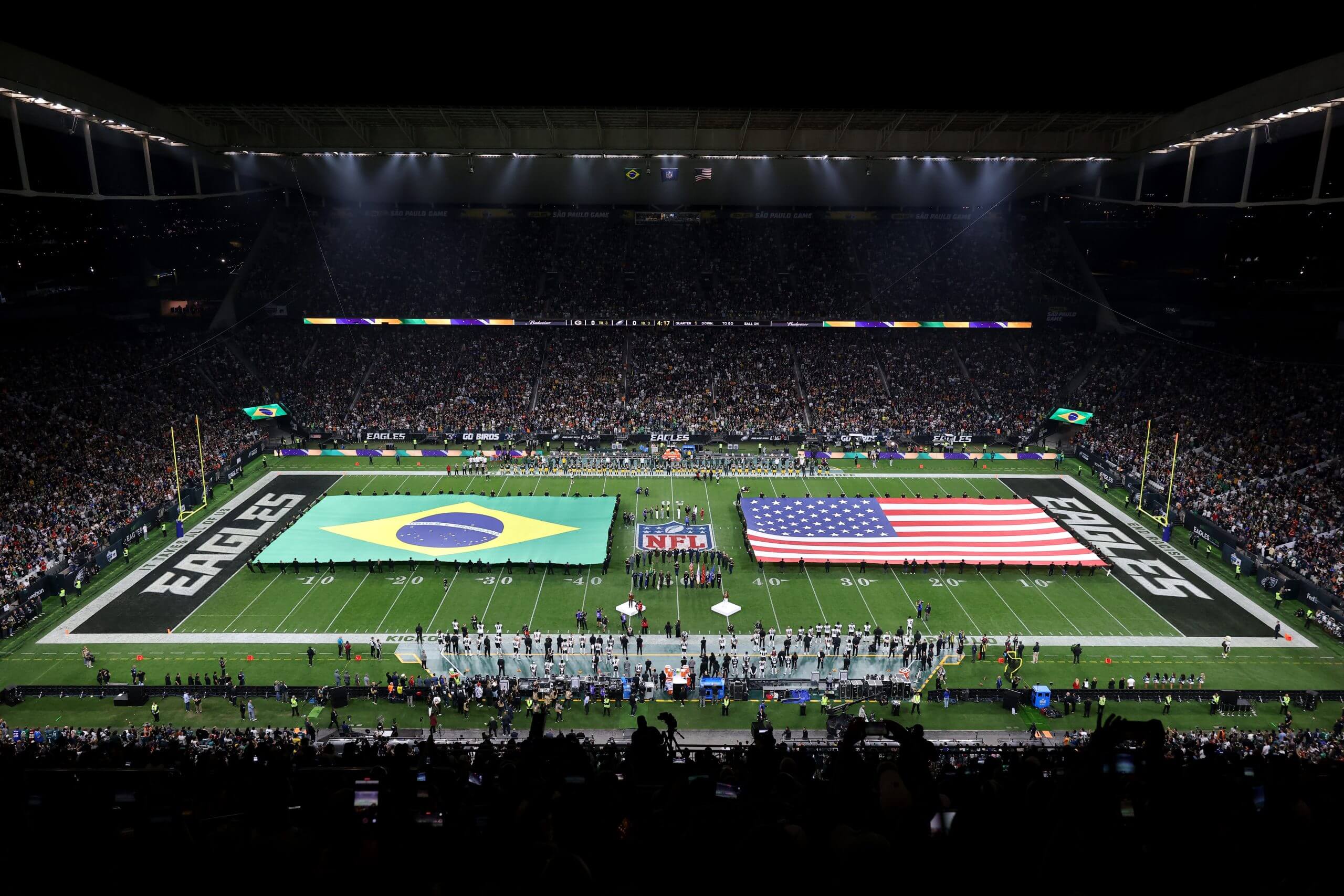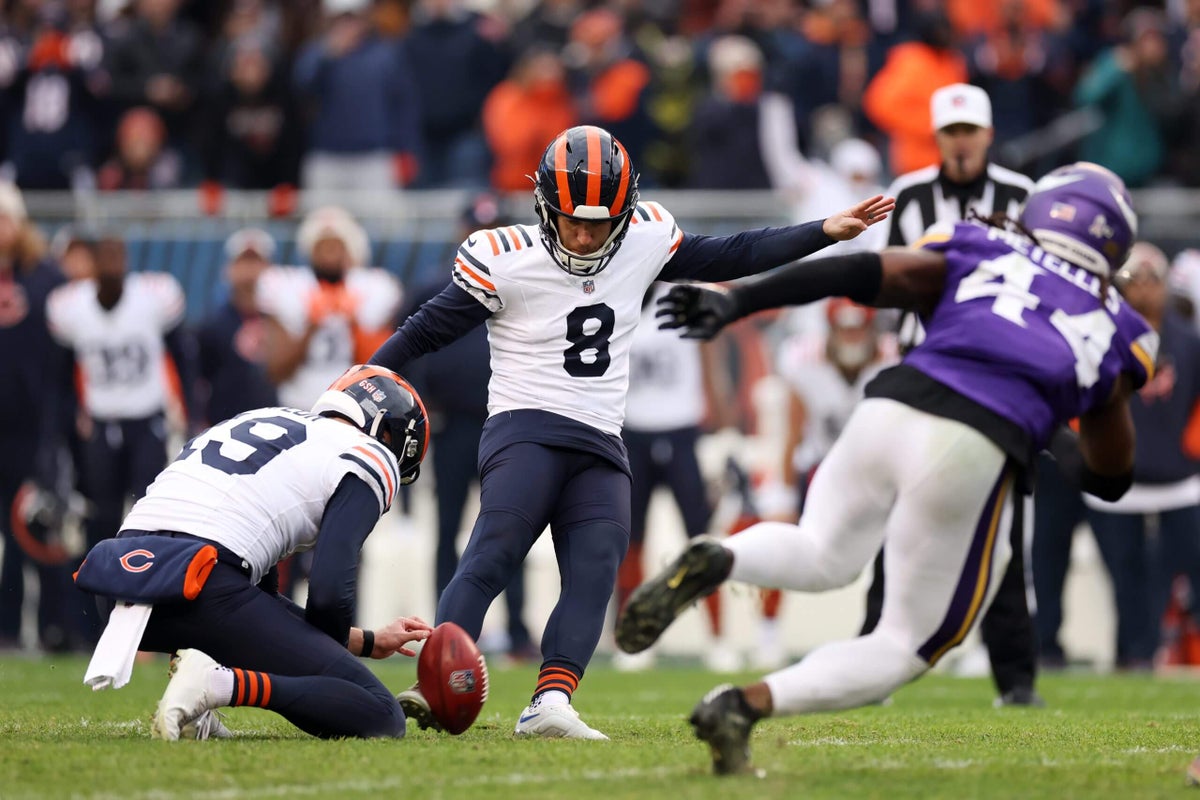Earlier this summer, Cairo Santos’ flight from Florida to Philadelphia was cancelled due to intense storms. Not one to be deterred, the Chicago Bears kicker set off on a 13-hour drive from Jacksonville to Lincoln Financial Field. Not even Mother Nature would stop him from watching his two favorite soccer teams compete against each other.
Was the 26-hour roundtrip worth it? Totally.
“It was one of the happiest days of my life,” the 33-year-old told The Athletic of learning Chelsea would play Flamengo in the group stages of the Club World Cup.
“I was rooting for a two-all draw, just to get a good game and no harm, no foul for either team, but Flamengo ended up playing the best match I’ve ever seen.”
Flamengo, one of Brazilian soccer’s storied teams, produced a heroic 3-1 win over its Premier League opponent that day, although Chelsea would ultimately go on to win the tournament.
As a Flamengo academy player — Santos played midfield, and was comfortable in possession and dictating play from the middle of the pitch — it was once his dream to play for the seven-time Brazilian Série A champion. “There’s a saying that Brazilians are born to play soccer,” Santos says, but life took an unexpected turn, one he hopes some of his compatriots can take inspiration from.
Having the Kansas City Chiefs and Los Angeles Chargers come to town, with the second game of the 2025 season kicking off at the Corinthians Arena, São Paulo on Sep. 5, might help his cause.

Patrick Mahomes speaks with Cairo Santos following a preseason game in 2024. (David Eulitt/Getty Images)
Of a nation of 220 million people, the seventh-largest population in the world, Santos is the only Brazilian NFL player.
Considering soccer’s standing in the country — Brazil has won five men’s World Cups, more than any other nation — he won’t be the only Brazilian with a big leg. So given Santos has been in the NFL since 2014, why haven’t more followed his path?
“When I was 15 and I left to come to America to play soccer, my old team (back in Brazil), I can count three or four people who were free-kick takers,” says Santos. “The goalkeeper was massive for a 15-year-old, probably 6ft 5in, and could kick the ball across the field. Man, thinking now maybe American football could have worked out for them too, if they had taken the path I took.
“Traditionally, it’s a difficult journey. NFL teams are looking at colleges to find their kickers and colleges are looking at high school players who have built experience. The journey to get to the NFL is still a little traditional in that way, that going through high school and college is still the best route to get to the pros. That’s an expensive and long project for a 15-year-old.”
It was at that age that Santos began to grasp how competitive soccer was in his homeland as tens of millions of people play the sport recreationally.
“Kids were dropping out of school to give it a chance,” he says. “That’s something my parents weren’t allowing me to do so I looked to the United States to do an exchange student program for a year, dreaming of coming here to find a university that would give me a scholarship to try and make soccer a profession, but also something that would open doors for my education, values my dad had taught me.”
And so he moved to the U.S. from the Brazilian capital Brasilia, and began his life away from his late father, Cairo Sr, a commercial pilot and stuntman, and mother, Magalie, for the first time, attending St Joseph Academy in Florida, a private Catholic school, before completing three years at Tulane University in New Orleans, Louisiana, studying business management.
“I started playing soccer in Florida and my friends noticed I had a really strong kick and they convinced me, ‘Hey man, there’s a position in American football they just kick the ball really far, so come to practice and see how far you can kick.’ I just wanted to do it to say that I got involved in American culture. So I go to practice, the team didn’t have an out-and-out kicker and that day I made a 50-yard field goal as a sophomore in high school. Back then, they told me it was rare to see,” he recalls.
“The coach said, ‘Number one, you’re on the team. Number two, you have the talent right now to get a soccer or American football scholarship.’ That lit a lightbulb in my head. I continued to play and received offers in both sports, but they’re both played in the fall in college so I had to pick one.”
He left Tulane having set a school record with a 57-yard field goal and made 21 of 21 field goals and 26 of 27 PATs in 2012, earning him the Lou Groza Award — presented annually to the top collegiate placekicker.
He went undrafted in 2014 but was signed as a free agent by the Kansas City Chiefs and on Sep. 7 that year became the first Brazilian-born player to feature in an NFL regular-season game. Around the same time, Brazilian-born Maikon Bonani was a kicker on the Tennessee Titans practice squad, but never made a regular-season appearance.
Santos mentions the International Player Pathway Program (IPP), which aims to create an opportunity for elite athletes around the world to convert from other sports to the NFL. Brazilian defensive tackle Durval Queiroz Neto spent three years with the Miami Dolphins after coming through the IPP, but didn’t make a regular-season appearance. There were no Brazilians in the latest 2025 cohort.

Arena Corinthians hosted an NFL game for the first time on September 6, 2024 in Sao Paulo, Brazil. (Wagner Meier/Getty Images)
The NFL says Brazil is home to more than 36 million fans, making it the second-largest international NFL fanbase after Mexico. NFL Flag, a non-contact version of American football where players wear flags attached to belts around their waist, has had 4,550 young athletes participate in Brazil since its launch in 2023, the league says.
This will be the second year that Brazil has hosted an NFL game, following last year’s matchup between the Green Bay Packers and Philadelphia Eagles, which the eventual Super Bowl champions won 34-29. In the NFL’s announcement for the 2025 game, São Paulo’s mayor, Ricardo Nunes, said last year’s match was worth $60 million to the economy.
“The first game was a huge moment for us Brazilians who have been consuming the NFL product as a fan base and the Brazilian market earned that opportunity,” Santos said. “I just felt really proud to see the reward, that all the Brazilian fans got that feeling of seeing an NFL game up close.”
Santos says he gets recognized more in Brazil than in the U.S.. “That tells me that they really try to pay attention to the person under the helmet, not just the football player… I’m proud to wear the Brazilian flag on my helmet and it’s something that makes me stand out compared to most players from the U.S..”
Santos has been Chicago’s full-time kicker since 2020 and signed a four-year extension with the Bears in 2023 worth $16m in total. He is the Bears’ most accurate kicker of all-time with an 89.9 conversion rate in the regular season during his five years in Chicago.
Even in the NFL, Santos has fulfilled some of his soccer dreams by playing at both Wembley and Tottenham Hotspur Stadium during NFL International Games in London and he is hopeful the “stars align” for other Brazilians to transition from soccer to American football.
“Getting a scholarship in college can open doors in our lives — that’s the beautiful thing about college sports in the U.S., the sport is not really the only benefit you get from it. Whereas in Brazil, when you play soccer, unless you make it professional that’s the end for most people,” he said.
Kicking in the NFL seems a reasonable backup dream to being the next Péle.
(Top photo: Luke Hales / Getty Images)

